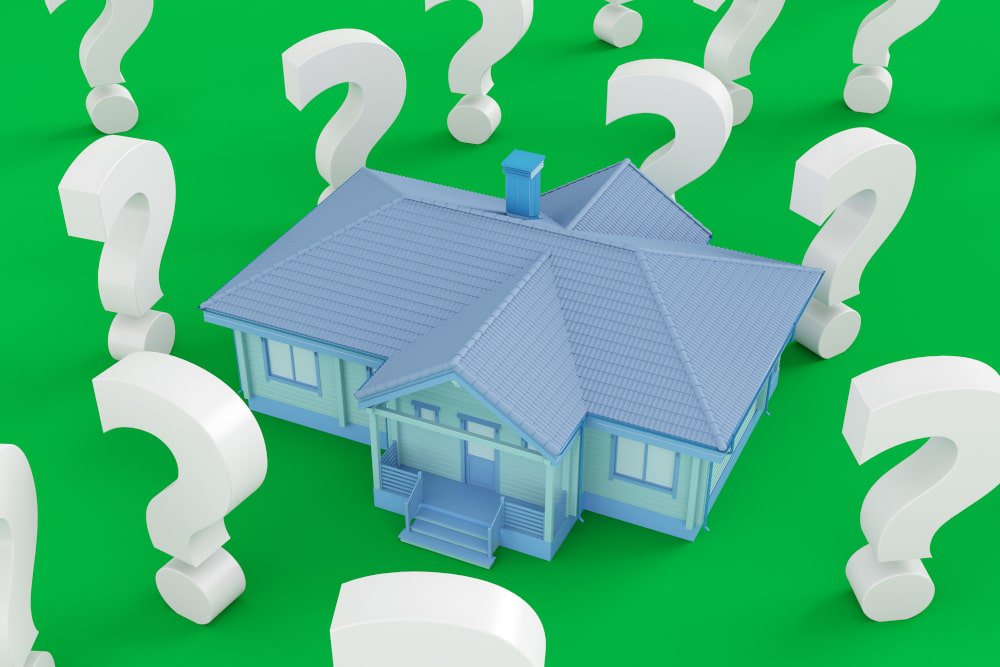12 Mortgage Questions to Ask Your Lender

Browsing around for a loan is similar to shopping for a property. Given how long you'll be committed to your mortgage, you'll want to plan ahead of time, and ensure you have all the best information before choosing between a bank or private lender. When you are looking for a mortgage lender, here are a few of the most important questions you can ask to set yourself up for success.
1. What Are My Loan Options?
Based on your income, credit score, debt history, and personal financing needs, your lender may be able to suggest different types of loans. Some lenders can offer open mortgages, closed mortgages, convertible mortgages, reverse mortgages, hybrid mortgages, and more.
However, not all lenders will help you determine which mortgage type is best for you. This is where working with a Clover Mortgage broker can be incredibly helpful, as we can connect you directly with the best lenders for your unique needs. For more information, check out our comprehensive guide on obtaining a mortgage.
2. What Are the Terms of the Loan?
The terms of the loan will typically cover your payment structure, your interest rate, your amortization period, as well as any additional notes such as prepayment allowances or penalties. You can improve the terms of your loan by increasing your income, credit score, or debt repayment history. You can also improve your terms by putting down a larger down payment, thereby reducing the risk to your lender.
3. How Much Can I Borrow?
Although getting pre-approved by a Clover Mortgage broker can give you a very accurate estimate of your maximum loan amount, you do not always have to borrow the full amount you are approved for. Your lender may be able to recommend the best range for you to stay within, in order to optimize the terms of your loan and ensure you are not overextending yourself.
You will receive an official loan commitment up to two days after beginning your mortgage application process, and a follow-up loan commitment up to two days after any major changes to your financial profile. Your lender will often provide insights into the best loan amount for you.
4. What is the Interest Rate and APR?
The interest rate on your mortgage loan can vary based on macroeconomic factors (such as the overnight lending rate) or personal factors (such as your income, credit score etc.). The type of lender you are using will also have an impact on your interest rate. Typically, AAA lenders such as the big banks will offer lower interest rates than alternative lenders.
You will also need to determine whether your mortgage will be a fixed-rate or variable-rate loan . If you opt for a variable-rate loan, it is important to ask your lender how often the rate is adjusted.
Once you have determined your interest rate, it is equally crucial to ask about the APR (annual percentage rate). The APR will include all the embedded expenses of your loan. The lower the APR offered, the fewer fees you are being charged by the lender, brokerage, appraiser, lawyer, and other parties involved in helping facilitate your mortgage.
5. What Are the Closing Costs?
Closing fees are fees such as appraisal charges, legal fees, and property transfer taxes, that are applied at closing, before you even begin paying down your mortgage.
In certain situations, you may be able to roll a portion of this sum into your mortgage, allowing you to amortize the payments over a longer period of time rather than paying it all at once. It is thus important to ask your lender about the magnitude of these costs and the various payment plans available.
With prime “AAA” lending institutions, your mortgage broker should not be charging a brokerage fee, and the lenders will not charge a lender fee, unless it is a commercial mortgage that you are seeking. Lender and brokerage fees are typically only charged with alternative and private lenders.
6. How Long is the Loan Term?
In Canada, the average loan term is five years long. At the end of a loan term, your mortgage must be renewed with your existing lender or refinanced with a new set of terms and conditions. This process is repeated over and over until the end of your mortgage amortization period— which typically lasts 25 years to 30 years. Before entering into a loan agreement, it is important to ask your lender about the length of your loan term, and ensure it aligns with your personal goals.
7. What Kind of Documentation is Required?
To ensure you are prepared for the mortgage approval process, it is a good idea to ask your lender what documentation they require. For instance, your lender may require that you provide employment history, income tax documents, current pay stubs, or job letters to prove your income. You may also be required to produce additional evidence if you are self-employed, such as your business license, tax statements, incorporation documents, and T1 generals. Your credit report and debt repayment history will likely also be analyzed by your lender.
8. What Are the Down Payment Requirements?
In Canada, the minimum down payment can be as low as 5%, or as high as 20% or more, based on the value of your property. Properties valued under $500,000 CAD are only subject to a 5% minimum down payment, whereas properties valued between $500,000 CAD and $1 million CAD will require a down payment of 5% for the first $500,000, plus 10% of the remaining purchase price. All properties valued over a million Canadian dollars are subject to a minimum down payment of 20%.
Based on your income, credit score, and loan-to-value ratio, your lender may impose minimum down payment requirements that fall above the legal minimums. You should also keep in mind that all down payments under 20% require you to purchase mortgage default insurance when financing with an institutional lender. This insurance premium will add additional costs across the lifetime of your loan. The first step to knowing which avenue is best for you is to ask your mortgage broker or your lender about their specific down payment policies, and what they recommend for you.
9. What Are the Prepayment Penalties?
Most mortgages have a set repayment date, by which point the full value of the loan must be paid back. If you attempt to pay back your mortgage before this date, you will likely incur pre-payment penalties , as your lender can no longer collect the full value of your interest payments. In Canada, the average prepayment penalty is equivalent to three months’ worth of interest payments, but it is best to check with your particular lender or broker.
10. What Are the Fees Associated with the Loan?
In addition to your closing costs, there may be a number of other fees that might be associated with your loan. While most of these costs are detailed in your closing disclosure, asking your lender about them early on in the process is never a bad idea.
11. Are There Any Loan Restrictions?
Every lender is unique, and therefore, each loan may have specific requirements and restrictions. If there are any restrictive terms, conditions, or covenants on your loan, it is important that you are made aware of them as soon as possible.
12. Are There Any Special Programs or Incentives?
There are a number of special programs and incentives you can ask your lender about. If you are unable to afford your down payment, one great option may be the Canada Revenue Agency (CRA)’s Home Buyer’s Plan (HBP). The Home Buyer’s Plan allows you to withdraw up to $60,000 from your Registered Retirement Savings Plan (RRSP) without taxation, so long as you use this money towards the purchase of a home, and you repay the amount withdrawn within the next 15 years.
Another great option is the first-time homebuyer’s incentive. Through this program, the government of Canada can grant first-time purchasers 5% of the purchase price of an existing house or 5-10% of the buying price of a newly constructed home. This amount, known as "the incentive," must be reimbursed after 25 years, or when the property is sold. There are restrictions that apply and you will need to qualify for this program based on their specific guidelines.
While lenders can be a great source of information, it can sometimes be overwhelming to compare information across multiple lenders and mortgage products. Here at Clover Mortgage, our experienced team of brokers has experience working with a network of over 50 different lenders and over 100 different mortgage products. We can work with you one-on-one to help connect you to the best lender, terms, and interest rate for your unique mortgage needs. Contact Clover Mortgage to schedule your free consultation today!





